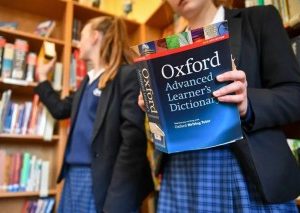
The new words reflect the everyday life of an
average Nigerian and the exciting street
mannerisms and Pidgin English, which are fast
gaining acceptability across Africa and beyond.
Reflecting ethnic nationalities as well as demographics, the new entries also highlight
Nigeria’s cultural diversity. Japa, 419, agbero, abi, area boy, yahoo boy, yahoo, Edo, Kanuri, and, cross-carpet, kobo, naija and suya are among the new words unveiled yesterday.
Some of the entries take both noun and verb
forms. For instance, OED takes japa as both a
noun and a verb. Jand also comes in both parts
of speech. This time, the entries also come with
pronunciations to support non-Nigerians who
are interested in studying the dictions.
Dr Kingsley Ugwuanyi, who consults for OED
and provides vocal support, told The Guardian
that the editors used corpora to determine words that are more frequently and widely used across the country.
“So, the criteria include frequency, widespread
use, age (generally words that have been in use
for zero to 10 years) and the social significance
of the words,” he explained.
Announcing the list on LinkedIn, Ugwuanyi said:
“This time, I not only drafted most of the words
but also had the incredible opportunity to
provide their pronunciations. So, when you
explore the OED online and click on the
pronunciations, you will hear my voice bringing
these words to life.” In 2020, OED added 29
entries peculiar to Nigeria, including danfo,
okada, next tomorrow and mama put.


Share your thoughts